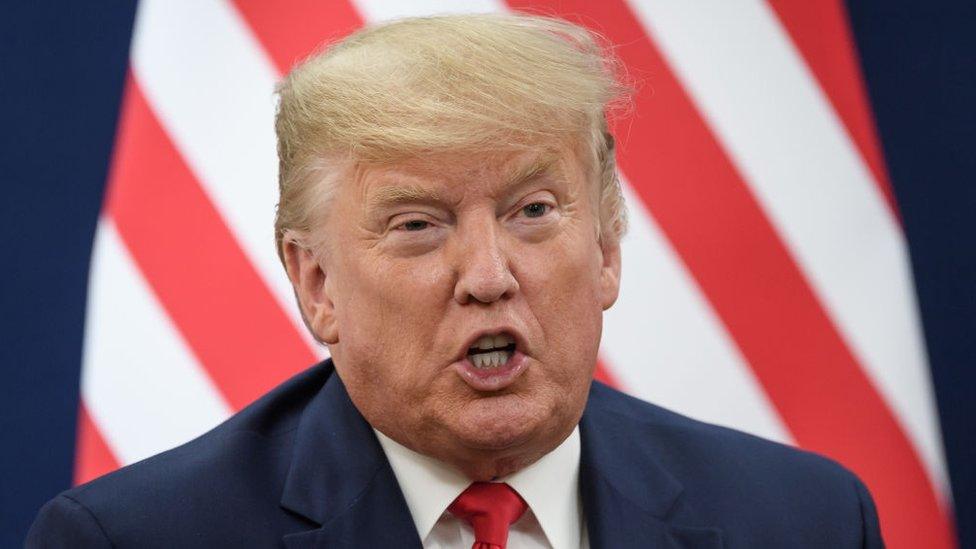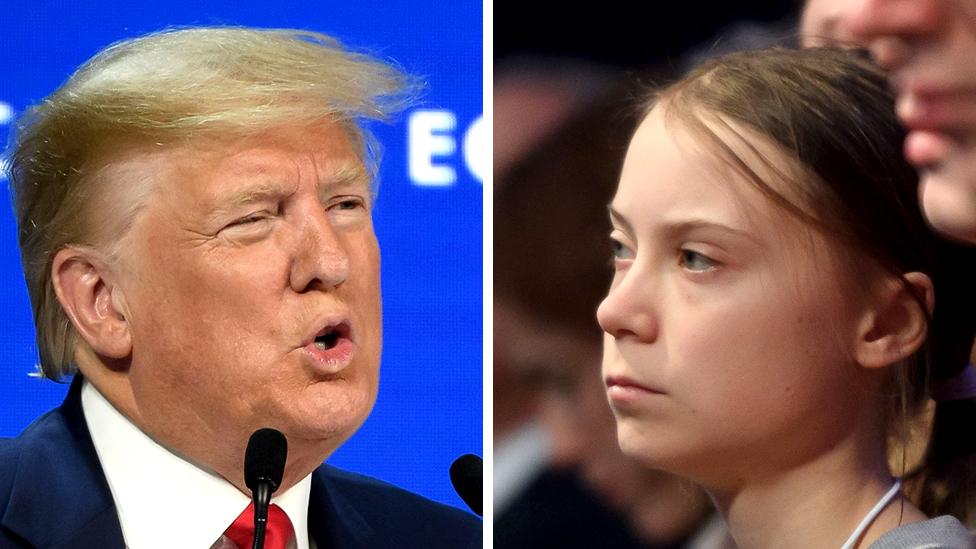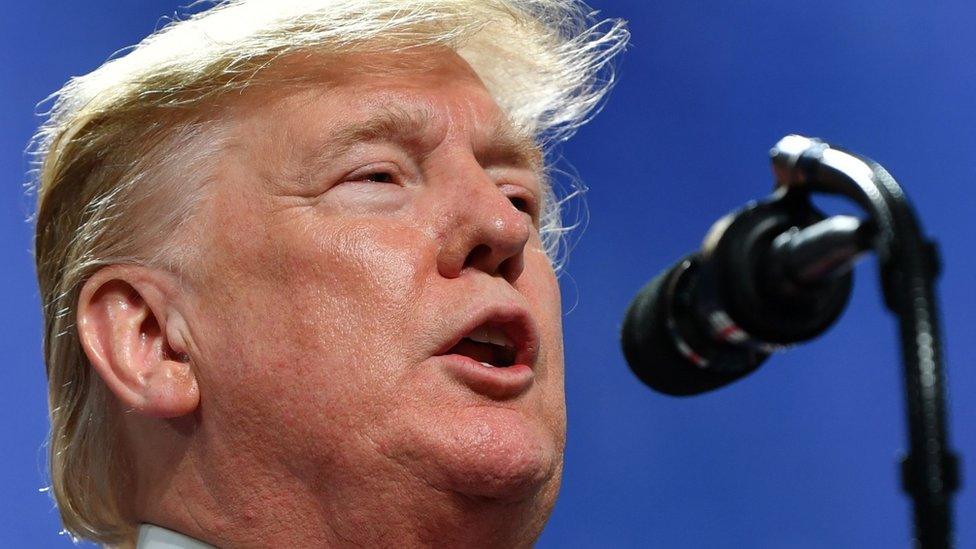Trump takes on Thunberg and 'pessimism' at Davos
- Published

It was, predictably, a rather different speech from the US President to open the 50th World Economic Forum.
Almost every other speech and panel here is about global cooperation and climate change.
President Trump's main message was about the unprecedented success of the US economy and his own policies.
While the rest of Davos is complaining that the world is on fire, the US President appeared to suggest that he himself and the US economy is what is burning bright right now.
"The US is in the midst of an economic boom the likes of which the world has never seen before," set the general tone.
The US was a "roaring geyser of opportunity" and he had just concluded two of the world's "biggest ever trade deals" in which "America is winning like never before".
"Prosperity has roared back" he said after the Obama years and this was a "blue collar boom" which sees the "American Dream back, bigger and better and stronger than ever before".
It went on in this vein for some time. But then there was the attack on the climate change movement, all but mentioning Greta Thunberg, the teenage schoolgirl climate campaigner who was in the audience.
"The perennial prophets of doom" with "predictions of apocalypse" must be rejected he said, referring to them as "the heirs of yesterday's foolish fortune tellers".
Some of this bravado might have been an attempt to change the subject from the impeachment trial back in Washington DC.
'Deal scepticism'
Meanwhile, in what might be the most apt metaphor for the relationship between politics and economics, the Nobel prize winner Joseph Stiglitz wrote fact checking leaflets disputing President Trump's economic claims, distributed on the floor of the Trump talk by his wife, the academic Anya Schiffrin.
Mr Stiglitz may well have been a top economist in Bill Clinton's administration, but the story of the US election will be about whether Trumpian claims that he is winning can compete with the fact-checking of liberal professors.
Elsewhere the consensus was that he was significantly over-claiming on the "deal" with China.
There was extreme scepticism here that China really would buy an extra $200bn imports from the US.
The key fact here being that this would not be able to be calculated before the November election date.
Tariffs remain around 20% between US and China, versus 3 to 8% less than two years go.
Where President Trump does seem to be "winning" is that those affected by trade tension with him can see the merit in allowing him to claim a victory in time for the election.
The French appear to have pushed back the implementation of a tech tax till the end of the year too. The UK will be under pressure too. The Chancellor arrives shortly.
- Published21 January 2020

- Published20 January 2020

